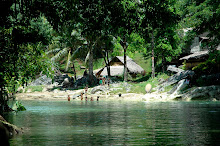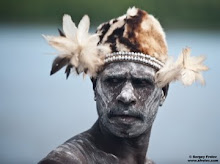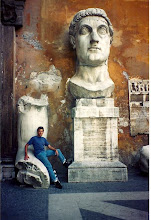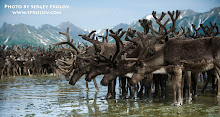
A favourite Chinese joke is one about George Bush Jnr, the USSR’s Putin and China’s current chairman, Hu Jintao, driving together in a car when they reach a crossroads. The driver of the car turns to the three leaders and asks them in which direction he should go, and Bush Jnr (or “little Bush” as our guide refers to him) says, “Turn right”.
The driver then asks Putin which way he should go, and Putin replies, “Turn right”. Finally, the driver asks Tao which way they should go and Tao replies: “Make a signal to turn left, but turn right.”
The humour in the joke is simply this: in China, the leadership professes to be communist, but it is in fact capitalist.
And after just over a week in China, I get the joke all right. Boy, those Chinese may have been slavishly following Chairman Mao in the 60s and 70s, doing his bidding in their identical suits like a drab sea of blue-grey ants, but when it comes to the tricks of the capitalist trade, they are rapidly catching on and up.
Here we are, for example, in a UNESCO world heritage site called Guilin, a tourist spot reno

wned for its scenic beauty, and honestly, what can I say? I would not recommend you visit. Sure, the river Li, surrounded by its limestone hills, winds merrily through countryside unspoilt – hallelujah – by smog-belching factories, but everything in this relatively small town (population only half a million, which is tiny by Chinese standards) is geared to tourists.
There’s nothing I dislike more than trekking in nature chased by ethnic people trying to sell me bangles, belts or bags. Drives me nuts!
So here we are, in countryside that allegedly inspired the movie AVATAR, wending our way up the mountains to visit the village of an ethnic minority race, the Zhuang (pronounced Ju-ang), and practically every step of the way, blocking the misty view of the terraced rice paddy fields, there are stalls to lure tourists to open their wallets and hand over a couple of yuan. Prices are heartbreakingly low - $60 for a beautifully wrought gold leaf Laughing Buddha the size of a small dog, for example – but a) do you really want or need it? b) Can you bear to bargain them down another yuan when the prices are already so low? And c) How are you going to lug this home all the way to Australia?
I hate it when my destination turns out to be alarmingly overcommercialised, and alas, this is one of those moments. You can’t see, let alone enjoy the scenery, for want of a vista devoid of a shack offering amulets, embroidery and other bric-a-brac.
By contrast, when I was walking in the Himalayas, the journey felt far more authentic. If you stopped for lunch, the menu was limited to ethnic cuisine, and the décor was primitive at best. Here in China, there are lodgings all along the stone paths wending upwards that boast TV, aircon, internet and WiFi. Whaaaa….t? Unreal!
And this was after flying some 2.5 hours southwest of Shanghai (and south of Beijing), and then driving a further two hours into the hills. Obviously, we haven’t plunged deep enough into the interior… or, alternatively, wild, untamed China barely exists. C’est la vie!
On our way to the Zhuang village, we stopped at another “minority group” village, the Yao, and they put on a concert for us. That was charming and comical as they unwound their very long, black hair and demonstrated their singing, dancing, wooing, embroidering and marrying skills (see

photo).
We ended our second day in Guilin with what is rapidly becoming a must-have luxury: a foot AND neck massage. We paid 100 yuan each for one hour (the equivalent of $20) and my cousin Jennifer felt cheated. Apparently, we paid far too much!
Our guide Amy has been a mine of information throughout our stay and amused us with her sayings. “In China, we eat everything with legs except tables and chairs” she says merrily and then adds very seriously: “But we don’t eat water buffalo, or cormorants, because we need both to harvest our food”.
country strong. She remembers, however, the hunger that many, many Chinese experienced during the Cultural Revolution when farmers were so busy studying Mao’s ideology that they failed to harvest sufficient crops to feed the people! “I would come home from school hungry and want to eat, and my mother would tell my sister and I to wait until the evening. Really, there was much suffering…”
By the time Mao’s successor, Deng Xaioping initiated his “Open Door” policy in 1979 and ordered the farmers back to the land, scholars back to school and professors back at university, “we the people had started to wake up,” explains Amy. “But in Chairman Mao’s time everybody slept without worries; today, with Open Door policy, more people are worried about where to live, where to work, about medical insurance, pension, everything. During Cultural Revolution, everything was taken care of for us.”
Hmmm. Yes, well. Can’t say I’ve got any easy solutions, Amy.
The next day, still in Guilin, we had a better day, and were reminded of Nixon’s words when he visited Guilin in 1973: “This is one of the most scenic spots in the world,” he apparently declared, probably being polite, but certainly Jennifer and I are growing accustomed to seeing the beauty of scenery despite mist and rain. Guilin gets rain more than half the year, but we are off next to a city of eight million where temperatures are around 33 deg C and dry.

Meanwhile, Jennifer and I took one last happy snap at Elephant Truck Hill (a limestone hill in the shape of an elephant’s trunk) as evidence that we really did visit this 2,300-year-old metropolis.
As we drive to the airport for another flight, we notice that apartment blocks seldom exceed five floors, which is part of this autonomous region’s strategy for keeping Guilin as pretty as possible, and also…. to not block out the limestone hills that surround this valley. Certainly, it makes a big change from most of the cities that boast avenues of apartment blocks 30, 40, 50 storeys high!
So, tomorrow the Terracotta warriors of Xian. Right now, I’m tuning in to Chinese TV to get the latest on World Cup soccer 2010. Go Australia!
 Hong Kong isn't quite China, but I couldn't resist touching down on the former British outpost en route to Sydney to visit my niece, Hayley, and her beau, Jay, both whom are doing the obligatory stint for a multinational bank in the former British colony as part of their climb up the career ladder. As expected, Honkers was not as exotically 'foreign' as the China mainland, but it was exciting and vibrant nonetheless. Here follows retrospectively a smorgasbord of experiences, climaxing with our last night together when we decided on five-star dining at a recommended eatery, Hutong. What a disappointing, disastrous idea that proved to be!
Hong Kong isn't quite China, but I couldn't resist touching down on the former British outpost en route to Sydney to visit my niece, Hayley, and her beau, Jay, both whom are doing the obligatory stint for a multinational bank in the former British colony as part of their climb up the career ladder. As expected, Honkers was not as exotically 'foreign' as the China mainland, but it was exciting and vibrant nonetheless. Here follows retrospectively a smorgasbord of experiences, climaxing with our last night together when we decided on five-star dining at a recommended eatery, Hutong. What a disappointing, disastrous idea that proved to be! 







































